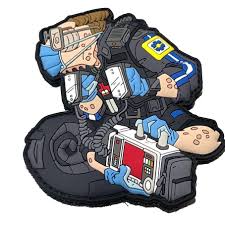Understanding the Essential Role of Paramedics in Healthcare

Introduction
Paramedics serve as frontline responders in emergency medical situations, playing a crucial role in delivering immediate care to patients. Their importance has been underscored during recent global health crises, including the COVID-19 pandemic, where prompt medical attention has been paramount. The relevance of paramedics in the healthcare system is not only evident in their rapid response capabilities but also in their capacity to perform critical interventions, often before patients reach a hospital.
The Vital Role of Paramedics
Paramedics are trained professionals who provide advanced emergency medical services, including evaluating and stabilising patients in urgent situations. They operate in various environments, from urban settings to remote locations, and are often the first point of contact for patients suffering from life-threatening conditions. Recent statistics from the National Health Service (NHS) indicate that paramedics attended over 6 million emergency callouts in the past year alone, highlighting their significant role in healthcare.
In the UK, paramedics undergo rigorous training, earning qualifications that allow them to deliver a broad range of medical interventions. These include administering medications, performing advanced airway management, and using defibrillators. Furthermore, their assessments during transport to healthcare facilities can be crucial in saving lives, as they provide real-time information to hospital staff about the patient’s condition.
Challenges Faced by Paramedics
Despite the critical services provided, paramedics face several challenges. One pressing issue is the increasing demand for emergency services, exacerbated by factors such as an aging population and the rise of chronic health conditions. The NHS has reported that paramedic callouts have surged, leading to pressure on ambulance services and longer response times. Additionally, paramedics often encounter challenging conditions, including dealing with violent or aggressive patients, which can impact their well-being and the quality of care provided.
Conclusion
The role of paramedics in the healthcare system is undeniable, with their expertise and quick action often determining patient outcomes in emergencies. As the demand for emergency services continues to rise, it is essential for policymakers to support these invaluable professionals through improved training, resources, and mental health support. Continued advocacy for the paramedic profession will ensure that they are well-prepared to face future challenges while providing the critical care that saves lives every day.









